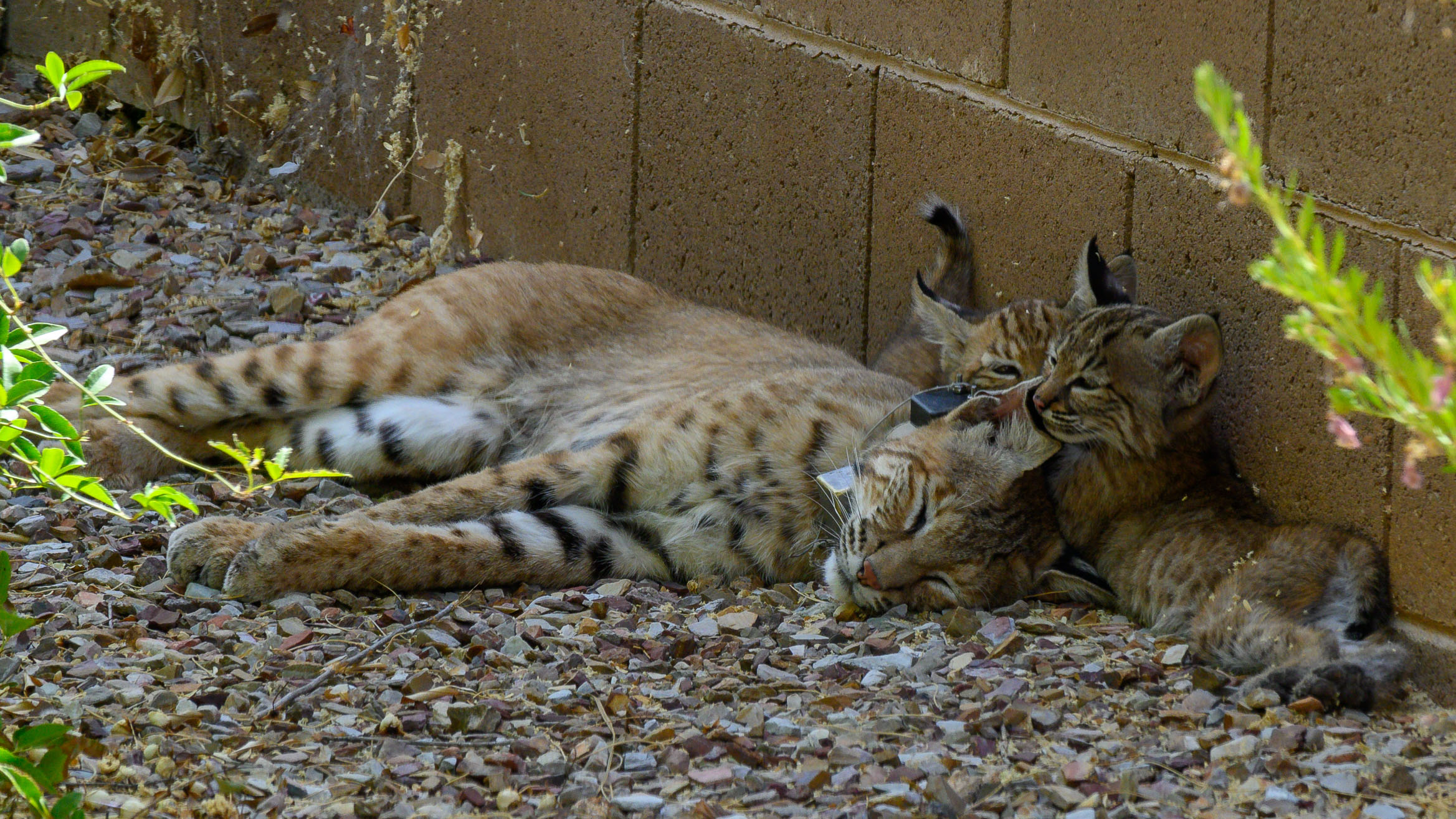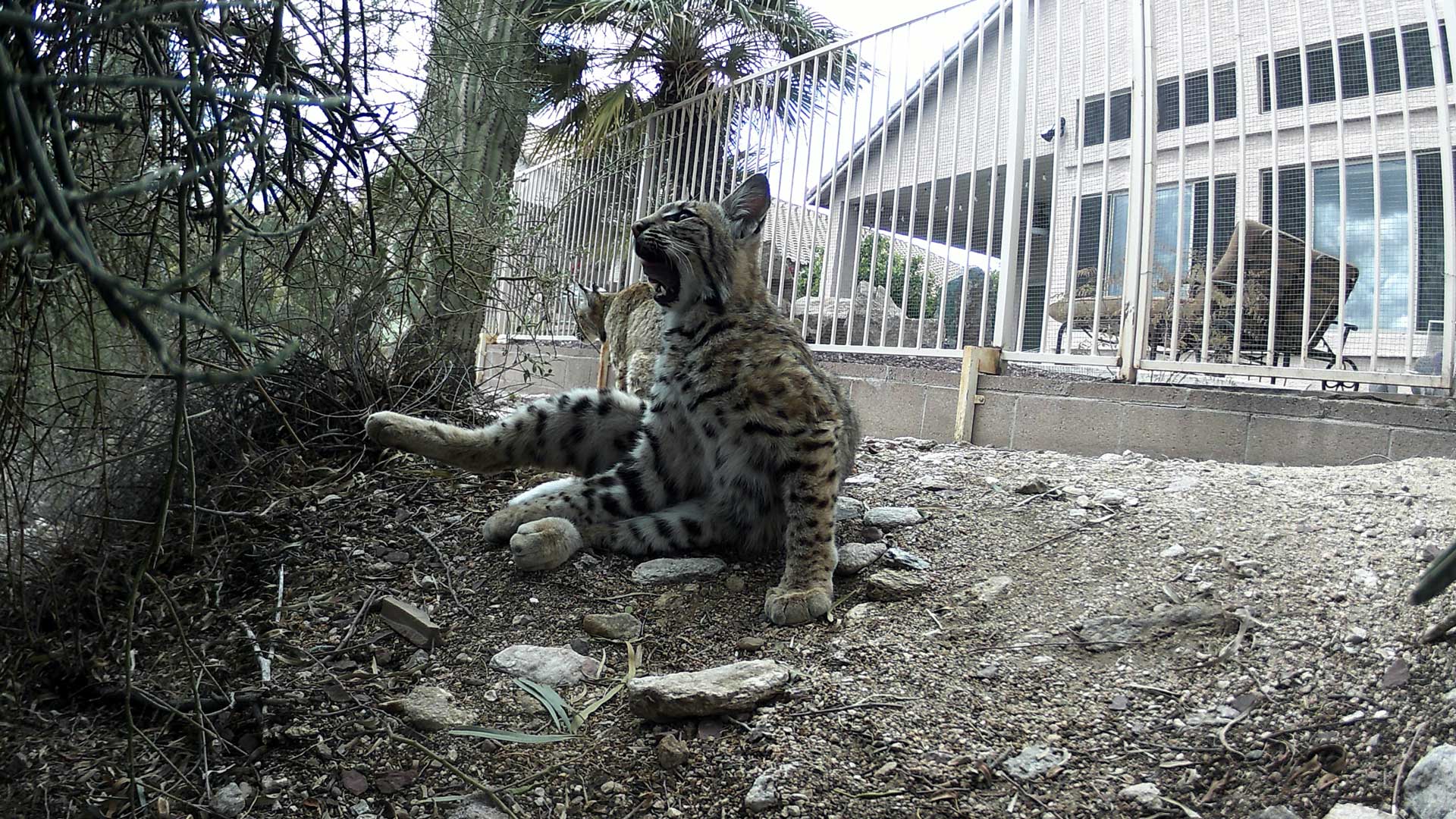 "Bobcat Avery" relaxes in a Tucson backyard west of I-10
"Bobcat Avery" relaxes in a Tucson backyard west of I-10
The bobcat (Lynx rufus), a relatively common mammal in North America, is getting more attention from people in Tucson who are extra curious about these wild cats.
A group of retired scientists are conducting the Bobcats in Tucson Research Project to learn more about these animals that live among humans west of I-10 in Tucson.
The project began in 2020 with a grant from the Arizona game and Fish Department Heritage Fund provided by lottery dollars used for wildlife, but it was extended for an extra year.
With a combined experience of more than 200 years, the participating scientists say they are gathering amazing data.
"Most urban bobcat populations live on the fringe, so they really live where the wild lands come together with urban areas, and some research has shown that they avoid urban areas," says project colead Cheryl Mollohan.
"And yet here we have bobcats across most of Tucson. I was just fascinated."
By trapping, examining and releasing the bobcats in a few minutes- and following up with state-of-the-art collars that are later released- the project has identified dozens of individual bobcats in the research area.
Around 50-thousand sightings of these specific bobcats have also been reported in the targeted study area, most of them from citizen scientists who live or have traveled where the bobcats have established territories.
"I learned about the research project on the Internet in 2021, and in the 36 years I've lived in this house, I've had many bobcats stop by," says resident and volunteer Karen Dotson.
"The thing that's most fun is when young ones come, and over the years, I've had a mom come and lay out on the sidewalk and let the babies play on the porch."
And while most people who have reached out to the Bobcats in Tucson Research Project have had positive comments about the animals, scientists say some residents would prefer not to have them around since they could prey on chickens or other domestic animals.
Biologists say awareness and education can prevent problems, such as building better chicken coops and not leaving your vulnerable pets unattended or unprotected outside.
"I think people and bobcats can coexist. Yes, because they're they're not an animal that's going to stalk you and try to kill you and that sort of thing," says project colead Al LeCount.
Once biologists are finished with their data gathering, they'll begin the process of writing reports- which they admit is much less fun than being outside and working with the cats and dozens of volunteers.
 A pair of bobcats behind a home in central Tucson.
A pair of bobcats behind a home in central Tucson.

By submitting your comments, you hereby give AZPM the right to post your comments and potentially use them in any other form of media operated by this institution.